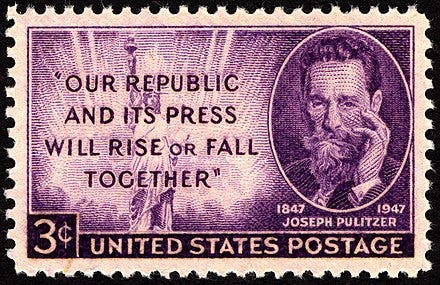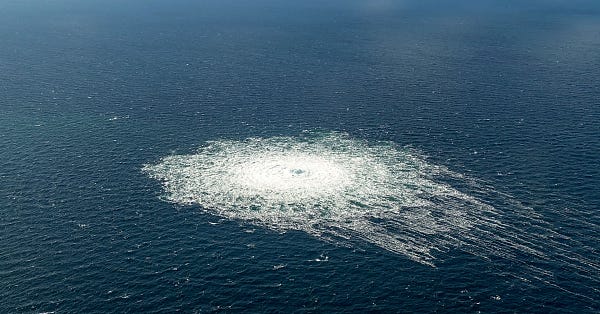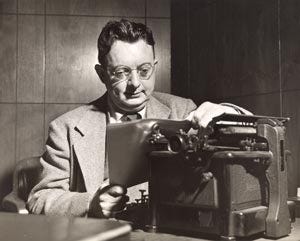The Sy Hersh Temptation...and Delusion
Just where exactly is the line between espionage and journalism anyway?
I read with some interest the Sy Hersh Substack story making the rounds on the subject of who done it re: the Nord Stream pipelines. As you know I’m written about the subject at length and done some interesting analysis of other pipeline explosions throughout history. Hersh is 85 years old so it’s interesting that he’s being held up as a sort of investigative reporter par excellence well into his dotage. Good for Sy Hersh. I, too, hope to be working well into my eighties.
But Hersh has what we might call a “batting average” when it comes to his work checking out. Some of his stuff has held up. Others of it hasn’t. That’s okay. Maybe you want some investigative journalists taking big risks—and maybe the price of those big risks is paid in a diminished reputation. Maybe the economics of journalism nowadays — to get attention, to be sensational, to be a brand — doesn’t always lend itself to the truth. Maybe business considerations however defined are in opposition to informing the public about what’s really going on.
As someone who once actively considered a journalistic career — an oxymoron — let me tell you that it is a hard, hard business, one which does not reward mavericks or independent thinkers nearly as much as you would want it to. Given how many of the people who are in it are nepo babies or trust fund kids I’m not even totally sure it can be called a business at all. The industry went from working class, rough to professionalized, elite. Everybody wants to win a Pulitzer but everyone forgets that Joseph Pulitzer was a tabloid guy and that his real fortune was in manipulating the stock market as memorably recounting in Pulitzer: A Life in Politics, Print, and Power (2010).

Pulitzer’s underhandedness reveals what’s been long understood — that the purpose of owning a news business is to shape the country and its markets. For those who are inclined to doing interesting research and making bets there’s really only one profession — investing — where you can hope to make a real living. You get paid for being right in investing. In journalism? Well, it all depends if some nation state likes your work or not. (We’ll get to that in a moment.)
What tends to happen is that in going independent you very much become dependent on your various sources of income and given the anonymous nature of a lot of donations on the Internet some of that money can come and does come from foreign intelligence. You can see that with the Chinese money flowing to both the Proud Boys and to #BlackLivesMatter.
When you’re an independent journalist you become a cut out, sometimes totally unwittingly. Sometimes it really is as simple as who your mentors are.
Speaking of which, a friend of mine and I are interested in building a database of who people’s mentors (or teachers) are.
Hersh’s connections to I. F. Stone should be understood in this context. There’s plenty of evidence that Hersh’s mentor Stone was if not a spy for the Russian-Jewish cause then certainly a go between between the communist world and America. Is it sometimes useful to pass messages from the Soviet World to the American world and back and forth? Absolutely and there are many, many figures who have donned the role of the traveling Jew making the circuit between China, Russia, and America. Think Henry Kissinger.
We should also note that the scoops that Hersh supposedly unearthed came from a strategic leak. The question is who benefits.
The late Ward Elliott of Claremont McKenna College wrote about how Hersh came to learn of My Lai. Hersh learned it, in effect, third hand.
One military man, Ronald L. Ridenhour '72, came from Vietnam to CMC, where he became a global media sensation. Ridenhour, while a LRRP specialist in Vietnam, had heard rumors of the My Lai massacre, of Vietnamese civilians by a rogue U.S. army rifle platoon. He verified the incident while still in Vietnam and spent his first months at CMC trying -- with surprising difficulty, because neither the Pentagon nor 24 anti-war Senators and congressmen would listen to him -- to bring it to public attention. By his second semester he had made contact with Seymour Hersh, a Washington journalist with the right connections, and the incident became the international scandal triumphantly presented by the Pomona Nine… [Emphasis mine].
If your view was that the War on Terror was another Vietnam then it stands to reason that you’d want to leak the photos of Abu Ghraib to the journalist who “uncovered” My Lai. Left unexplored is whether or nor your “uncovering” was actually leaked to you by a foreign intelligence wanting to embarrass the United States and whether or not that really matters.
The theory that I’ve come to believe is that Hersh was fed a bunch of fake things deliberately by intelligence connected sources as a way of trying to shift the geopolitics. In my understanding neither Russia nor Ukraine have the resources to win out right. Russia has the manpower but not the will while Ukraine has the will but not the manpower. If you can’t win on the battlefield, maybe you can change the politics. Maybe you should focus on the message rather than the messenger. Maybe you can create a story and then use your bot nets to elevate it.


The material, leaked to Hersh about Navy divers, was a way of revealing other operations that America could do. The immediate pushback of British-linked Bellingcat told me more than I needed — that it was British hacking that got it done. Can that be known yet?
That’s hard to say but I suspect we will never know the answer. Ian Bremmer suggests it was Ukraine. Could be.
The Russians will still blame us, though, and continue their campaign of hacking and damaging our critical infrastructure with the help of their Likud-Israeli allies.




